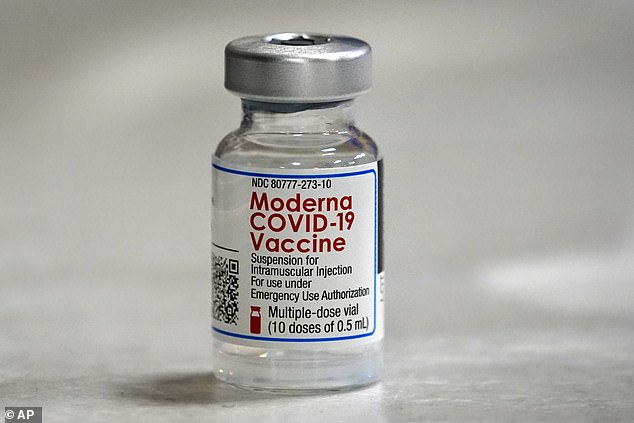Yet ANOTHER jab supplier says ‘non’ to the EU: France and Italy suffer further blows to their vaccine rollout as US firm Moderna will deliver fewer doses
- US supplier Moderna will deliver 20 per cent fewer jab doses to Italy by February
- France is now expecting 25 per cent fewer doses than originally scheduled
- The company said deliveries would fall short because of a production glitch
France and Italy suffered further blows to their vaccine rollouts yesterday after a major manufacturer said it could not deliver the doses originally expected.
US supplier Moderna will deliver 20 per cent fewer jab doses to Italy by early February than previously thought, according to the country’s special commissioner for Covid.
France is now expecting 25 per cent fewer doses than originally scheduled, its health ministry said. The cuts are the latest in a series of setbacks to European Union nations hoping to improve coronavirus inoculation rates.
EU officials are already up in arms over news drugs giant AstraZeneca will only deliver around a quarter of the 100million doses it had allegedly pledged for the first three months of the year.
France and Italy suffered further blows to their vaccine rollouts yesterday after US supplier Moderna said it could not deliver the doses originally expected
The company said deliveries would fall short because of a production glitch, said to be at a hub in Belgium.
In contrast, Britain has already secured 100million doses of the AstraZeneca jab, developed with Oxford University, and pre-ordered 17million doses of the Moderna vaccine – which are expected to arrive in the spring.
The delays mean countries including France, Portugal and the Netherlands will struggle to meet their vaccination targets.
Portugal, where deaths and infections have spiked to record levels, warned it could take up to two months longer than initially planned to complete the first phase of its vaccinations.
Yesterday French authorities instructed hospitals to delay the first injections for two to four weeks to conserve doses for those waiting for a second injection. Madrid has already cancelled first dose injections for two weeks over supply issues.
The EU maintains AstraZeneca is reneging on a promise over doses. But the bloc did not sign an agreement with the pharmaceutical giant until August last year following delays over approval – three months after the UK. By July, Britain also had agreements with Pfizer, Valneva and GlaxoSmithKline.
Leading German politicians hit out at beleaguered European Commission president Ursula von der Leyen over the fiasco yesterday, insisting she should take full responsibility.
Lars Klingbeil, general secretary of the centre-Left Social Democrats (SPD) said yesterday: ‘I am absolutely stunned by how negligent Mrs von der Leyen has been in overseeing the start of vaccinations in recent months.’
The SPD’s Carsten Schneider also added: ‘Vaccination is our only way out of the crisis, it has to be a leader’s responsibility.’
High demand has also meant the Pfizer/BioNTech jab, on which the EU was largely relying, has experienced delays.
Domenico Arcuri, leader of Italy’s pandemic response, said the country was ‘astonished, concerned and disappointed’, adding that ‘almost every day the forecasted deliveries are changed’.
Hungary yesterday became the first EU country to approve China’s Sinopharm Covid-19 vaccine, sealing a deal for 5million doses. Last week, it became the first to approve Russia’s Sputnik V vaccine, ordering a million doses.
Last night the International Chamber of Commerce warned the EU that blocking vaccine exports could worsen the crisis.
In a letter to Mrs von der Leyen, sent on Thursday, the group warned: ‘Our immediate fear is that the proposed EU export controls risk triggering retaliatory actions by third countries that could very rapidly erode essential supply chains.’
